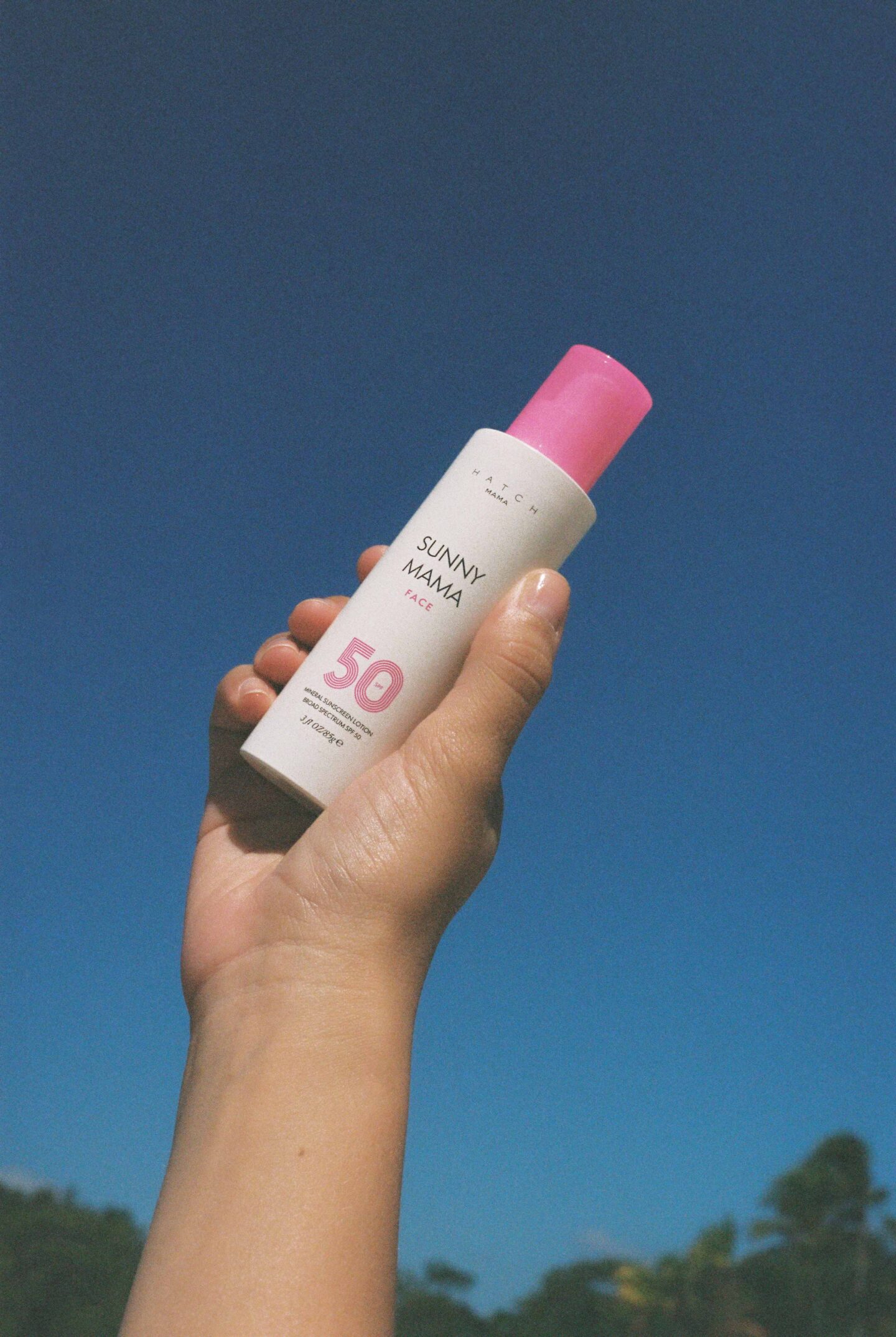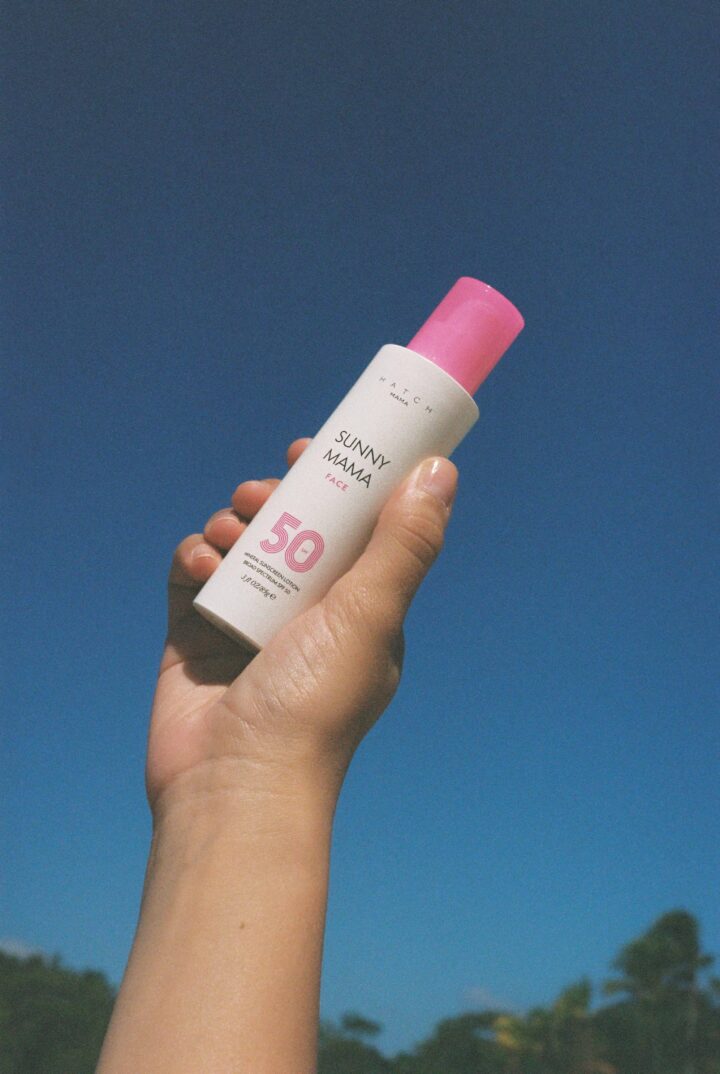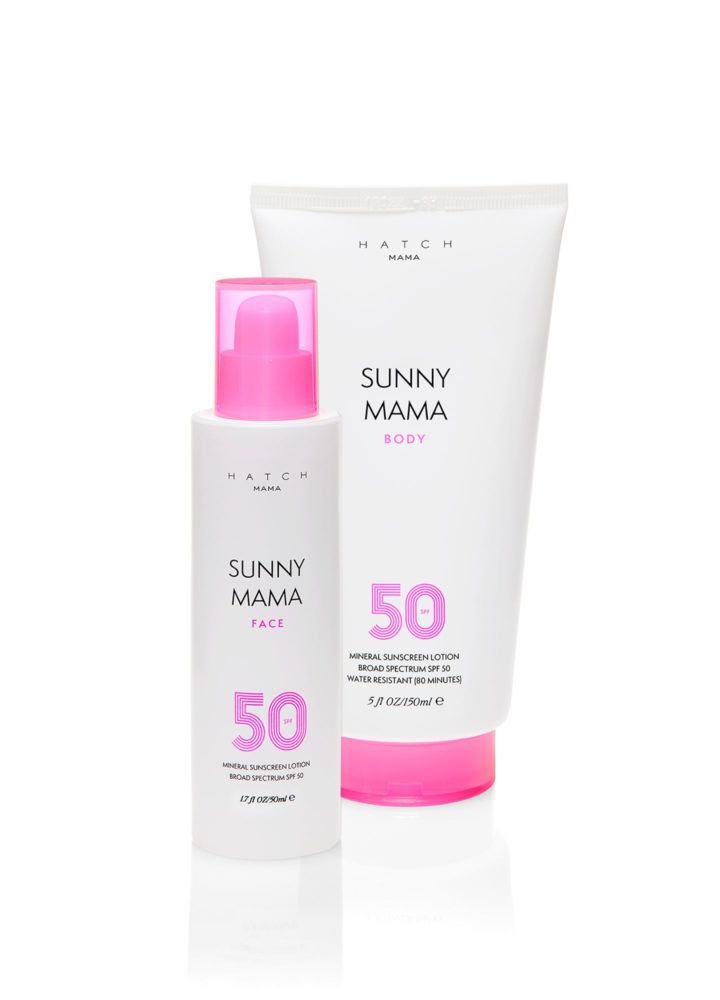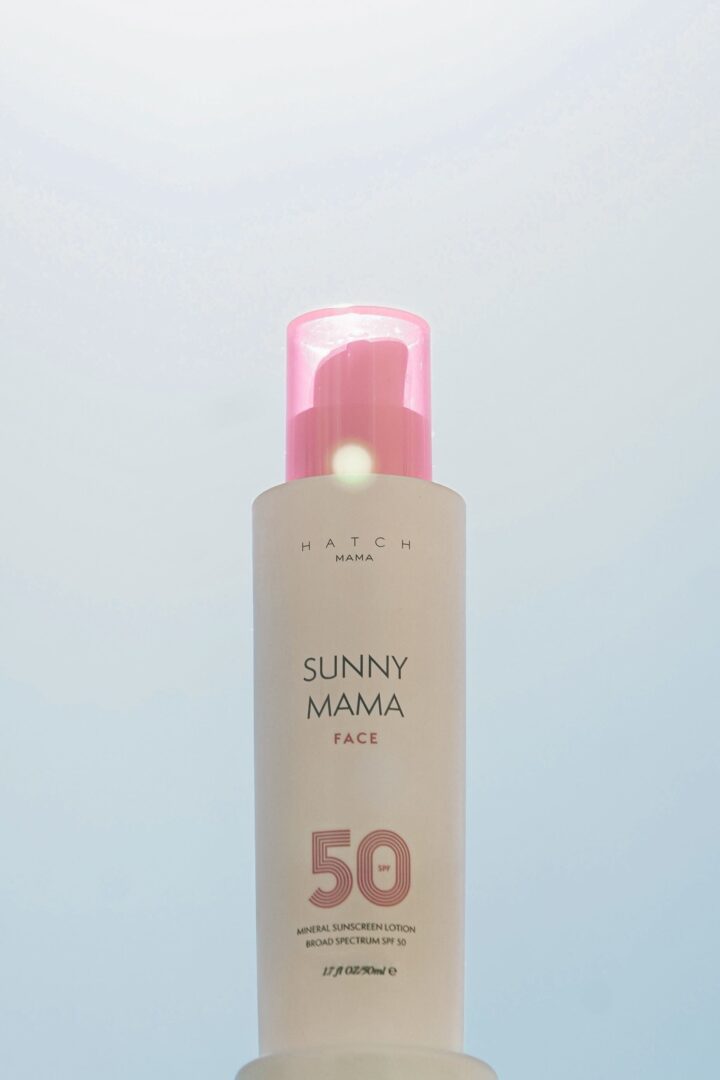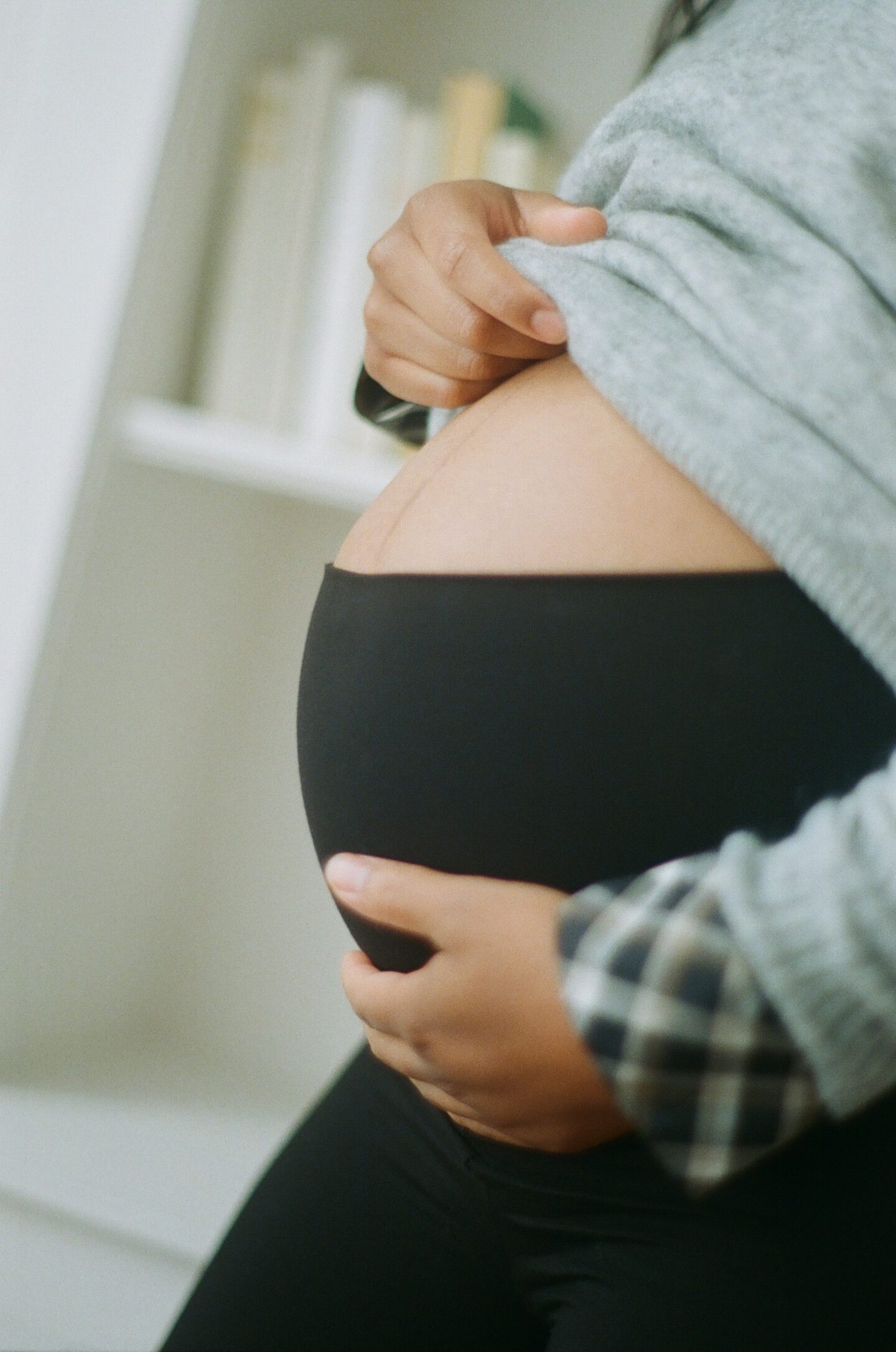Welcome to your comprehensive guide to pregnancy-safe sunscreen. As an expecting mama, you’ve likely been diligent about taking care of your health. However, did you know that sun protection becomes even more critical during pregnancy?
You may be surprised to learn that your skin can become more susceptible to the sun’s harmful ultraviolet (UV) rays when you’re expecting. The good news is that with the right sunscreen, you can effectively safeguard your skin.
Let’s delve into why sun protection is paramount during pregnancy and unravel some common misconceptions about sunscreen use.
Why Is Sun Protection Crucial During Pregnancy?
During pregnancy, your body undergoes various changes, including increased hormone levels, which can make your skin more sensitive to the sun. You may notice that you burn more easily or that your skin reacts more dramatically to a small amount of sun exposure.
This heightened sensitivity can lead to a condition called melasma, also known as the “mask of pregnancy.” Melasma causes brown or grayish-brown patches on the face, often triggered by sun exposure.
Understanding Sunscreen: The Basics
Sunscreen is your front-line defense against the skin-damaging effects of sun exposure. But what exactly does sunscreen protect against? The sun emits two types of rays harmful to our skin: UVA and UVB. UVA rays can prematurely age your skin, causing wrinkling and age spots, while UVB rays can burn the skin.
The sun protection factor (SPF) on your sunscreen bottle refers to how well the product protects against UVB rays. For instance, SPF 30 blocks nearly 97 percent of UVB rays, while SPF 50 blocks about 98% percent. It’s important to note, however, that no sunscreen can block 100 percent of UV rays.
Basically, there are two types of sunscreen: chemical and physical (also known as mineral). Chemical sunscreens absorb UV rays before they can damage your skin, while physical sunscreens deflect the sun’s rays. There has been an ongoing debate about the safety of certain chemicals in sunscreens, leading the Food and Drug Administration (FDA) to advocate for more research into these ingredients.
As an expecting mom, you might want to err on the side of caution and lean towards mineral sunscreens during this time.
Pregnancy-Safe Sunscreen Ingredients
When you’re expecting, every product’s ingredient list can feel like a minefield. Sunscreens are no exception. But don’t worry — your friends here at Hatch have you covered.
Two active ingredients you can feel safe about are zinc oxide and titanium dioxide. These are minerals that sit on the skin’s surface and physically block harmful UV rays from penetrating the skin.
However, there are certain chemicals that have raised concern in the dermatology community due to their potential hormonal effects. These include oxybenzone, octinoxate, homosalate, octocrylene, and avobenzone.
While further research is ongoing, during pregnancy, it might be best to stick to sunscreens that rely on zinc oxide or titanium dioxide for broad-spectrum protection.
How To Find the Best Pregnancy-Safe Sunscreen
Searching for a pregnancy-safe sunscreen that fits your lifestyle and skincare needs doesn’t have to be a daunting task. Here are some tips to help you narrow down your options:
Understand Your Skin’s Needs
Your skin type is a significant factor to consider. If your skin is sensitive, look for hypoallergenic and fragrance-free options.
If you have oily or acne-prone skin, try to seek out non-comedogenic formulas that won’t clog your pores or cause breakouts. On the flip side, dry skin types may want to look for sunscreens that offer hydrating properties.
Check the Active Ingredients
As mentioned earlier, zinc oxide and titanium dioxide are your go-to active ingredients for safe, physical sun protection. Try to steer clear of chemical filters like oxybenzone and octinoxate, especially during pregnancy.
Go for Broad-Spectrum
Make sure you choose a broad-spectrum sunscreen. This means it shields your skin from both UVA (aging) and UVB (burning) rays.
SPF Matters
Dermatologists recommend using sunscreen with at least a broad-spectrum SPF of 30, which blocks nearly 97 percent of UVB rays. Higher SPFs block slightly more, but remember, no sunscreen can block 100 percent of UV rays.
Consider the Application
Sunscreen comes in different forms — mineral sunscreen lotions, sunscreen sticks, sunscreen sprays, and more. Think about what would be most convenient for you.
Lotions are generally great for a thorough application, while sticks can be useful for hard-to-reach areas like the back. Sprays can be convenient, but it’s important to make sure you’re applying enough and not missing spots.
Don’t Forget about Everyday Use
Sun protection is not just for beach days. It’s essential to wear sunscreen every day, even when it’s cloudy, as UV rays can penetrate through clouds.
Make sure you apply your sunblock after all of your other skincare products in the morning. If you’re wearing makeup, consider sunscreens that work well under cosmetics.
The Sunny Mama Face + Body Duo by Hatch
Now that we have a better understanding, one product stands out as a fantastic option for expecting mothers: the Sunny Mama Face + Body Duo by yours truly here at Hatch. This pregnancy-safe face and body sunscreen duo aligns perfectly with the guidelines we’ve covered.
With mineral broad-spectrum formulas, SPF 30, and a skin-nourishing blend of antioxidant-rich botanical extracts, it’s an easy pick for comprehensive UV protection. The Sunny Mama Face offers an ultra-light yet nourishing formula designed for sensitive, hormonal skin.
Simultaneously, the Sunny Mama Body provides a fast-absorbing formula that helps fend off discoloration while keeping your skin well-hydrated. Plus, both products are free from harmful chemicals and offer a no-fuss application process to seamlessly incorporate into your daily routine.
Application Advice
Regardless of the sunscreen you choose, proper application is crucial. Dermatologists recommend applying sunscreen 15 minutes before going outside and reapplying every two hours or immediately after swimming or excessive sweating.
Make sure to apply a generous amount — most people don’t use enough sunscreen, which can result in inadequate protection. And don’t forget other sun-protective measures like wearing sunglasses, a wide-brimmed hat, protective clothing, and seeking shade whenever possible.
Frequently Asked Questions About Pregnancy-Safe Sunscreens
Now that we’ve covered the basics, let’s answer a few questions. Read on to learn more about how to protect yourself from the sun during this exciting journey.
Are Mineral Sunscreens Safe for Pregnancy?
Mineral sunscreens, often called physical sunscreens, are usually considered safer for pregnant women. They use active ingredients like zinc oxide and titanium dioxide to deflect UV rays, reducing the risk of sunburn and skin damage.
Can Sunscreen Affect Breastfeeding or Breast Milk?
The active ingredients in some sunscreens can be absorbed into the skin and, theoretically, could make their way into breast milk. That’s why it’s recommended to stick with mineral sunscreens during pregnancy and while breastfeeding. These sunscreens are not absorbed into the skin, so they’re unlikely to affect breast milk.
Can I Use the Same Sunscreen for My Whole Family?
Absolutely. Mineral sunscreens are typically safe for everyone, including kids. Just ensure the product is broad-spectrum, water-resistant, and preferably fragrance-free to accommodate sensitive skin types.
Can I Use Tinted Sunscreen?
If you’re concerned about the white cast that some mineral sunscreens can leave behind, consider an option that comes with a tint. Many brands offer tinted sunscreens that blend well with various skin tones.
Can Sunscreen Also Act as a Moisturizer?
Many sunscreens have hydrating ingredients like hyaluronic acid, shea butter, and vitamin E. Our Sunny Mama Face sunscreen, for instance, is packed with antioxidant-rich botanical extracts and offers a boost of natural, nourishing hydration.
Always consult with a board-certified dermatologist or your healthcare provider if you have specific concerns about sun protection during pregnancy. At Hatch, we’re committed to helping you navigate through your journey safely and confidently, one trimester at a time.
Wrapping Things Up
Ensuring adequate sun protection during pregnancy is both a crucial health and self-care step. Armed with the knowledge from this guide, finding the right pregnancy-safe sunscreen can be a breeze. Remember, your ideal sunscreen is out there, and it might just be our Sunny Mama Face + Body Duo.
At Babe by Hatch, we are committed to helping you navigate through your pregnancy journey, providing reliable products that make you feel good, confident, and secure in your skin. We’re here for every step, every change, and every sunny day ahead.
Sources:
